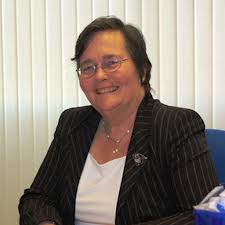Keynote Lecture II: Friday 17 May 9.00 – 10.00
Abstract
Re-engineering education: a call for collective action
The problem
Improving teacher education and learner outcomes is a major challenge for developing and developed countries. So why aren’t policy and practice underpinned by an agreed body of research based evidence? In its 2009 report the OECD calls for the creation of knowledge-rich, evidence-based systems to empower educational leaders and teachers with the knowledge needed to transform models of schooling.
New systems are needed. The challenge for teacher educators who have deep knowledge about effective teaching and learning is to create these ‘knowledge-rich, evidence-based systems’. No one else is going to do this. UK experience with government support for such systems is that this is subject to ideological whim. This keynote outlines ways in which educators worldwide can work more effectively within existing resources to pool our knowledge, to identify gaps in knowledge needed to improve learning outcomes, to scale up small scale research and to publish in new ways which are relevant and accessible to the teacher in the classroom.
The keynote will outline the concept of translational research (‘benchtop to bedside’, ‘concept to classroom’) and what producing and publishing of translational research for education might look like, on a large scale, in the education sector. Conference participants are invited to engage in an endeavour to build and share pedagogic content knowledge on an international scale (see www.MESHguides.org and www.educationcommunities.org).
Successful examples from other sectors
The medical profession is ahead of the education sector in harnessing digital technologies to support the building and sharing of research-based knowledge. Through collaborations such as Map of Medical Healthguides, the Cochrane Collaboration and the UK National Institute for Health and Clinical Excellence (NICE), policy into practice has strengthened, so-called translational or “benchtop to bedside” research.
How might the education sector become a ‘knowledge-rich, evidence-based sector?
This keynote outlines new ways of working using an e-infrastructure to support worldwide collaboration, to share, publish and update research based knowledge about effective pedagogy ie translational research.
The Mapping Educational Specialist knowHow project (MESH) uses an accessible multimedia mindmap approach to present a diagrammatic database of subject-specific research-based knowledge about the teaching and learning of topics across the curricular disciplines (linked to video e.g. that of the Khan Academy). MESH is managed and quality assured through specialist editorial boards. On-line Education Communities (EdComms) provide the e-infrastructure to support cross-cultural collaboration through Research and Development Review groups. Collectively, the education sector has the content knowledge, expertise and credibility to build MESH, and provide a collaborative tool-kit for charities, teachers, academics and policy makers across the globe. The educators already supporting this initiative come from many countries and know there is huge potential for online low cost e-tools to support the education sector to develop, update, publish and disseminate quality assured knowledge.
The developing partnership
Some partners behind this project (UK, Czech, Portuguese, Australian, New Zealand) have worked together for twenty years in research and development on the ways the web can be used to support teacher professional development eg the European SchoolNet. UK partners have in addition twenty five years experience of mobilising and paying for expert knowledge through editing and building up the major text book series for secondary teacher education in the UK which involves hundreds of contributors. They have also developed web resources for many government agencies. Other partnerships are relatively new to these ideas but all support MESH (ICET, US, Pakistan, Finland, Spain, Greece). The ideas have been tested with trainee, newly qualified and experienced teachers as well as teacher educators, UK unions, subject associations, lead thinkers.
For those who want their research and knowledge to impact on teaching and learning in schools, MESH is an idea for which the time has come.
Biography
Research Professor Marilyn Leask (Educational Knowledge Management
University of Bedfordshire, UK) has initiated and project managed a number of innovative projects funded by government and other sources focused on using digital technologies to make the evidence base for educational practice more accessible to all stakeholders.
She has worked as a researcher and manager in secondary schools, local authorities, universities and two national government agencies. Her research on knowledge management, mechanisms for leveraging national change in professional practice and the harnessing the power of technologies to support improvement of professional practice has been used to underpin national developments eg: at the Training and Development Agency for schools (2002-2006) she brought together subject associations and colleagues across the education sector to establish the Teacher Training Resource Bank (www.ttrb.ac.uk – archived by the government elected in 2010); at the Improvement and Development Agency for local government (2006 – 2008) she set up online communities for local government using web 2.0 technology (http://www.communities.idea.gov.uk) . She was instrumental in establishing what was the DFE Teachernet (http://www.teachernet.gov.uk – now archived ), the Educational Evidence Portal (www.eep.ac.uk) and the European SchoolNet (http://www.eun.org.uk). She is co-editor of the main text books used for the training of teachers in the UK. Her scrutiny over 30 years of the evidence available to underpin practice and policy in the education sector and the difficulties in achievement experienced by a significant percentage of learners (in universities and schools) are behind the challenges and opportunities for educators that she outlines in her presentation.
Roles on external bodies
Chief Editor: Mapping Educational Specialist knowHow (MESH) www.MESHguides.org. Chair: Education Futures Collaboration www.edfuturescollboration.org
Member of the Education panel of the UK national Research Assessment Exercise 2009
Advisory roles: OECD, EU bodies, UK ministry of education
Elected member of the Executive Council of UK Universities Council for the Education of Teachers
Member of Executive Council UK IT in Teacher Education professional body

